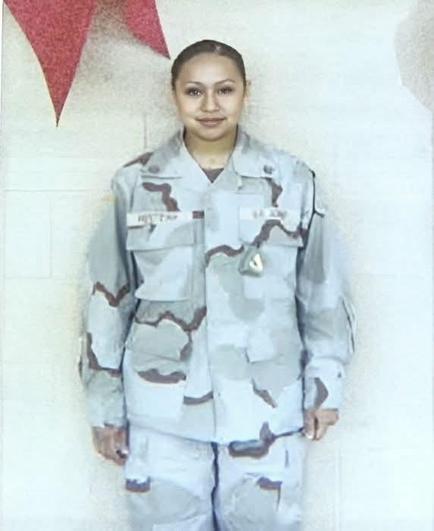Recent searches
Search options
Specialist Lori Ann Piestewa, (December 14, 1979 – March 23, 2003) was a U.S. Army Quartermaster Corps soldier killed in action during Operation Iraqi Freedom.
A member of the Hopi tribe, Piestewa was the first Native American woman in history to die in combat while serving with the U.S. military and the first woman in the U.S. armed forces killed in the 2003 invasion of Iraq.
Piestewa born and raised in Tuba City, Arizona, a border town between the Hopi and Navajo reservations – was a member of the US Army’s 507th Maintenance Company, a support unit of maintenance and repair personnel.
On March 23, Piestewa’s Company was traveling in a convoy through the desert and was meant to bypass Nasiriyah, in southern Iraq, during the opening days of the war; but the convoy which had taken a wrong turn into Nasiriyah was ambushed by the enemy and cut into three sections. Piestewa and her best friend Jessica Lynch were in the back of the column amid slow, and some disabled, heavy trucks.
At one point, Lynch’s five-ton truck, hauling a “water buffalo” – a trailer filled with 400 gallons of water – broke down. She was standing in the desert, frightened and bewildered when a Humvee rattled over.
Piestewa – known as “Pi” to her fellow soldiers – looked at her shaken friend. “Get in, roommate,” she said.
Piestewa, driving the group’s Humvee, was initially able to avoid incoming fire, but in the end her vehicle was disabled by a rocket-propelled grenade. The blast slammed the Humvee into a tractor-trailer, killing three passengers and leaving Piestewa with severe head wounds. Taken prisoner, she died at an Iraqi civilian hospital.
Lynch said she was unconscious for about three hours before arriving at the same hospital by Iraqi troops. She said she never saw Piestewa after the Humvee crash.
The ensuing attack proved to be the Army’s bloodiest day of the ground war in Iraq.
The story of Lynch’s capture and dramatic nighttime rescue Nine days later, made her an instant celebrity. It was the first rescue of a female POW in American history.
For Lynch’s family, the miraculous news came April 1: U.S. commandos had rescued Lynch, wounded but alive.
Honoring Piestewa
Lynch has attended annual ceremonies at Piestewa Peak named in honor of her friend and has repeatedly said that Piestewa is the true hero of the ambush and named her daughter Dakota Ann in honor of her fallen comrade. Piestewa’s middle name was Ann, and Dakota means friendship or ally.
Piestewa had medical clearance to stay home from Iraq because of a shoulder injury but chose to deploy because of her deep friendship with rescued POW Lynch, according to a book, I Am a Soldier, Too: The Jessica Lynch Story.
Piestewa was awarded the Purple Heart and Prisoner of War Medal. The US Army posthumously promoted her from Private First Class to Specialist.
A Pentagon official publicly confirmed that Piestewa, in fact, fought back courageously as her unit was ambushed on March 23.
She drew her weapon and fought and did it with courage and honor.
Piestewa saw herself as a Hopi warrior, part of a centuries-old tradition developed by a people who once themselves resisted an invasion and occupation by the U.S. military. She went to war, but she believed above all in peace, in doing no harm to others. “I’m not trying to be a hero,” she told a friend just before the invasion. “I just want to get through this crap and go home.”
She was a single mother with a son, 4, and a daughter, 3.
After her death, Piestewa was returned home and now rests on the Hopi reservation near Tuba City. Her two young children, Brandon, and Carla were entrusted to the care of her parents.
Her death led to a rare joint prayer gathering between members of the Hopi and Navajo tribes, which have had a centuries-old rivalry.
In 2007, Lori’s father, Terry Piestewa said, “The Hopi believe that once you go on your journey, you don’t look back.” Still, there can be no denying that Lori left an indelible mark on the world she left behind.



